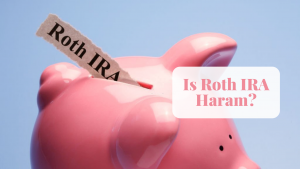Mutual Funds are considered halal if it is shariah compliant. Halal mutual funds involved in socially responsible industries such as healthcare, renewable energy, and education.
Are mutual funds halal? When it comes to investing, there are many different options available. One popular option is mutual funds. There is no easy answer to this question. It depends on a number of factors, including the type of fund and the way it is managed. Make sure to read till the end to find the answers to your queries.
What is Halal?
There are certain behaviours that are considered to be halal, or permissible, in Islam. These include things like eating halal food, praying regularly, and avoiding activities that are considered haram, or forbidden.
One of the most important aspects of halal living is ensuring that all food and drink consumed is halal. This means avoiding anything that is considered to be unclean, such as pork or alcohol. Muslims will also only eat meat that has been properly slaughtered in accordance with Islamic law.
Prayer is another important part of halal living. Muslims are required to pray five times a day, and this can be done anywhere, whether it be at home, at work, or in a mosque.
Finally, Muslims are expected to avoid any activities that are considered haram. This includes things like gambling, smoking, and taking drugs. Halal living is all about following the rules and guidelines set out in Islam in order to live a peaceful and fulfilling life.
Concept of Islamic Finance
Islamic finance refers to a system of financial services that align with Islamic principles. It is built on the foundation of Shariah law, which outlines the ethical and moral standards expected of Muslims. The concept of Islamic finance is based on shared risk and profit, as opposed to interest-based lending and borrowing.
Here are some key points to consider when it comes to Islamic finance:
- The central concept of Islamic finance is the prohibition of riba (interest). Muslims believe that riba is exploitative and creates an unequal transaction between the lender and borrower.
- Investment in businesses or projects that involve haram (forbidden) activities such as gambling, alcohol, tobacco, or weapons production is strictly prohibited.
- The concept of gharar (uncertainty or speculation) is also not allowed in Islamic finance. This means that speculative investments, such as those involving futures and options, are not permissible.
- Instead, Islamic finance encourages the sharing of risk and profit through investments. This is achieved through partnerships, profit-sharing agreements, and joint ventures.
- In Islamic finance, the ultimate goal is to promote social justice and equity through ethical investment practices.
Comparison of Islamic Finance and Conventional Finance
| Feature | Islamic Finance | Conventional Finance |
|---|---|---|
| Interest | Prohibited | Allowed |
| Risk-sharing | Encouraged | Not encouraged |
| Prohibited investments | Alcohol, tobacco, gambling, weapons | None |
| Objective | Promotes social justice and equity | Maximizes profit |
As you can see, Islamic finance and conventional finance differ significantly in their approach to investing. While conventional finance seeks to maximize profit, Islamic finance focuses on promoting social justice and equity through ethical investment practices.
Are Mutual Funds Halal?
When it comes to investing, one of the first questions that many Muslims have is whether or not mutual funds are halal. In general, mutual funds are considered haram due to the fact that they involve speculation and gambling.
However, there are some shariah-compliant mutual funds which are considered acceptable for Muslims to invest in. These mutual funds typically invest in businesses that are considered halal, such as those involved in Islamic banking or other shariah-compliant industries.
If you’re looking to invest in a mutual fund as a Muslim, be sure to research whether or not it is halal before committing any money. Doing so will help you ensure that your investment is in line with your religious beliefs. (Source)
Halal Criteria for Mutual Funds
The concept of halal investing lies at the core of Shariah-compliant mutual funds. The halal criteria are principles that dictate which investments are acceptable under Shariah law and can be included in the mutual fund’s portfolio. Here are some key points to understand about the criteria for halal mutual funds:
- One of the key principles governing halal investing is that only businesses that comply with Islamic law and values should be included in the mutual fund’s portfolio. Businesses involved in the production of haram (forbidden) products such as alcohol, tobacco, weapons, and pornography are avoided.
- Companies that are involved in industries deemed to be socially, morally or ethically responsible are given preference. These may include businesses focused on healthcare, education or renewable energy, or those that prioritize environmental sustainability.
- Shariah compliance screening is a strict process that assesses businesses on a range of criteria outlined by Islamic scholars. This involves analyzing a company’s balance sheet, sources of revenue, and business practices. Investment in interest-based (riba) financial instruments and high-risk ventures are also avoided.
| Halal Criteria | Explanation |
|---|---|
| Shariah compliance | Businesses must abide by tenets outlined in Islamic law and values. |
| Social responsibility | Companies involved in socially responsible activities, such as health care, education, and environmental sustainability are emphasized. |
| Haram industries | Companies involved in the production of haram (forbidden) products, such alcohol, tobacco, weapons, and pornography, are avoided. |
| Screening process | A range of criteria specified by Islamic scholars is used to ensure that investments are Shariah-compliant. Investment in interest-based (riba) financial instruments and high-risk ventures are also avoided. |
The halal criteria in mutual funds ensure that investments made are socially, morally, and ethically responsible. It is the responsibility of the mutual fund managers to ensure that the companies they invest in comply with Islamic law and values, and that the investments made align with the objectives that the mutual fund seeks to achieve.
Investing in Interest-Bearing Securities in Halal Mutual Funds
The prohibition of riba (interest) is a fundamental concept in Islamic finance, which raises questions about the suitability of interest-bearing securities in halal mutual funds. Here are a few key points to understand about investing in interest-bearing securities in halal mutual funds:
- Halal mutual funds should not invest in bonds or other securities that pay interest, as riba is considered haram under Islamic law.
- In order to comply with Shariah law, mutual funds invest in sukuk, which are Islamic bonds that generate returns via profit-sharing structures.
- A sukuk functions similarly to a conventional bond, in that it involves the issuance of a fixed-income security. However, instead of a fixed interest rate, the issuer agrees to share the returns generated through the project being financed with the investors, based on an agreed-upon profit-sharing ratio.
- The sukuk market has grown significantly in recent years, providing investors with a wider range of Shariah-compliant investment options.
| Feature | Conventional Bond | Sukuk |
|---|---|---|
| Interest-based | Yes | No |
| Return mechanism | Fixed interest rate | Profit-sharing |
| Shariah compliance | Non-compliant | Compliant |
| Risk sharing | No | Yes |
Conclusion
When it comes to investing in mutual funds, there is no definitive answer as to whether or not they are halal. It ultimately depends on the specific fund and how it is managed. Hope your queries were answered and if you have any other question make sure to read in the comments. Thanks for reading!
Also explore Is Options Trading Halal, Is Insurance Haram, Is Working In Real Estate Haram and many more.








